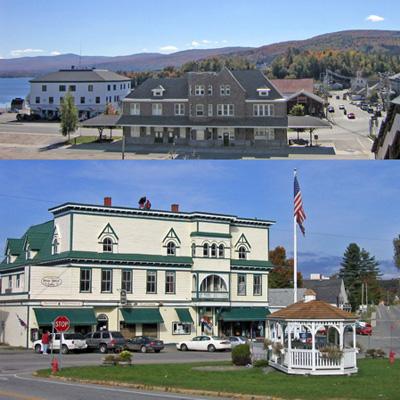Assessing Community Values: Public Discourse in Debates about Community Values

In response to the decline of agriculture, mining, and manufacturing, many rural areas have sought to attract tourism industries. In transitioning to tourism economies, rural towns often need to boost their appeal to visitors and investors. Attempts to define and communicate a desirable “sense of place” often accompany town promotion strategies. NSRC researchers questioned whether tourism planning in Vermont’s Northern Forest region results in development of place images originating from individuals who have a personal and direct interest in local economic growth or from a broad and representative community consensus on the direction of the local economy.
To explore how two rural Vermont towns, Brighton and Barton, are transitioning to a service economy and publicize an attractive character of place, researchers interviewed sixteen central residents in each town and reviewed town plans, meeting minutes, census data, and promotional brochures. Brighton’s tourism-friendly image dominates public discussion about the future of the town. This vision obscures tensions in the community regarding the appropriateness of service-based employment. While tourism is promoted in Barton, there is a continued reliance on manufacturing and investment in social improvements such as a new health clinic and education center. But, respondents still express uncertainty about the town’s future.
Images of place presented for tourism consumption favor local, growth-oriented groups, whose rhetorical strategies can gloss over differences in local residents’ visions for the future. As Northern Forest communities attempt to build sustainable futures, rural tourism planning processes that consider the political nature of place imagery must be understood by all community members through a range of communication strategies.
Download printable version [PDF]
Download full final report [PDF]
